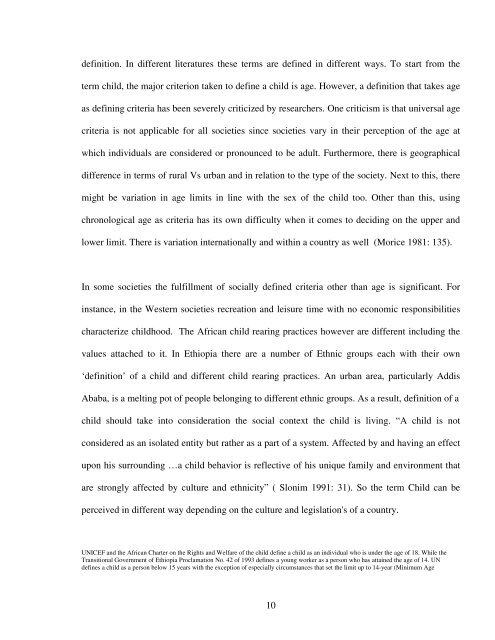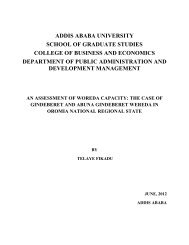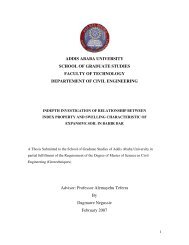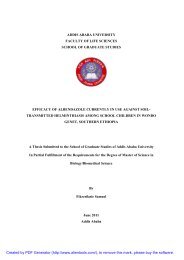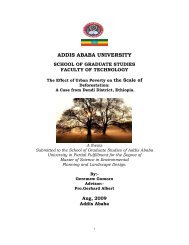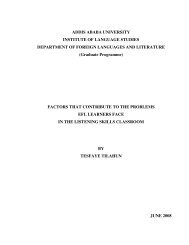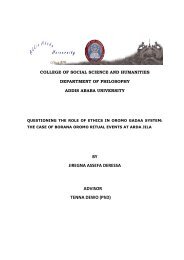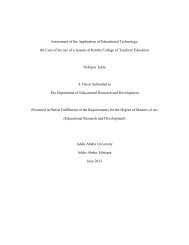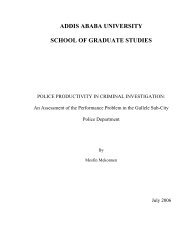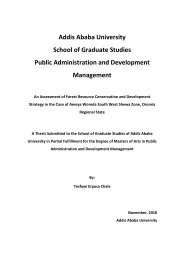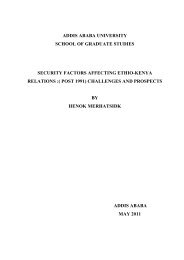(RLDS) - Addis Ababa University
(RLDS) - Addis Ababa University
(RLDS) - Addis Ababa University
Create successful ePaper yourself
Turn your PDF publications into a flip-book with our unique Google optimized e-Paper software.
definition. In different literatures these terms are defined in different ways. To start from the<br />
term child, the major criterion taken to define a child is age. However, a definition that takes age<br />
as defining criteria has been severely criticized by researchers. One criticism is that universal age<br />
criteria is not applicable for all societies since societies vary in their perception of the age at<br />
which individuals are considered or pronounced to be adult. Furthermore, there is geographical<br />
difference in terms of rural Vs urban and in relation to the type of the society. Next to this, there<br />
might be variation in age limits in line with the sex of the child too. Other than this, using<br />
chronological age as criteria has its own difficulty when it comes to deciding on the upper and<br />
lower limit. There is variation internationally and within a country as well (Morice 1981: 135).<br />
In some societies the fulfillment of socially defined criteria other than age is significant. For<br />
instance, in the Western societies recreation and leisure time with no economic responsibilities<br />
characterize childhood. The African child rearing practices however are different including the<br />
values attached to it. In Ethiopia there are a number of Ethnic groups each with their own<br />
‘definition’ of a child and different child rearing practices. An urban area, particularly <strong>Addis</strong><br />
<strong>Ababa</strong>, is a melting pot of people belonging to different ethnic groups. As a result, definition of a<br />
child should take into consideration the social context the child is living. “A child is not<br />
considered as an isolated entity but rather as a part of a system. Affected by and having an effect<br />
upon his surrounding …a child behavior is reflective of his unique family and environment that<br />
are strongly affected by culture and ethnicity” ( Slonim 1991: 31). So the term Child can be<br />
perceived in different way depending on the culture and legislation's of a country.<br />
UNICEF and the African Charter on the Rights and Welfare of the child define a child as an individual who is under the age of 18. While the<br />
Transitional Government of Ethiopia Proclamation No. 42 of 1993 defines a young worker as a person who has attained the age of 14. UN<br />
defines a child as a person below 15 years with the exception of especially circumstances that set the limit up to 14-year (Minimum Age<br />
10


